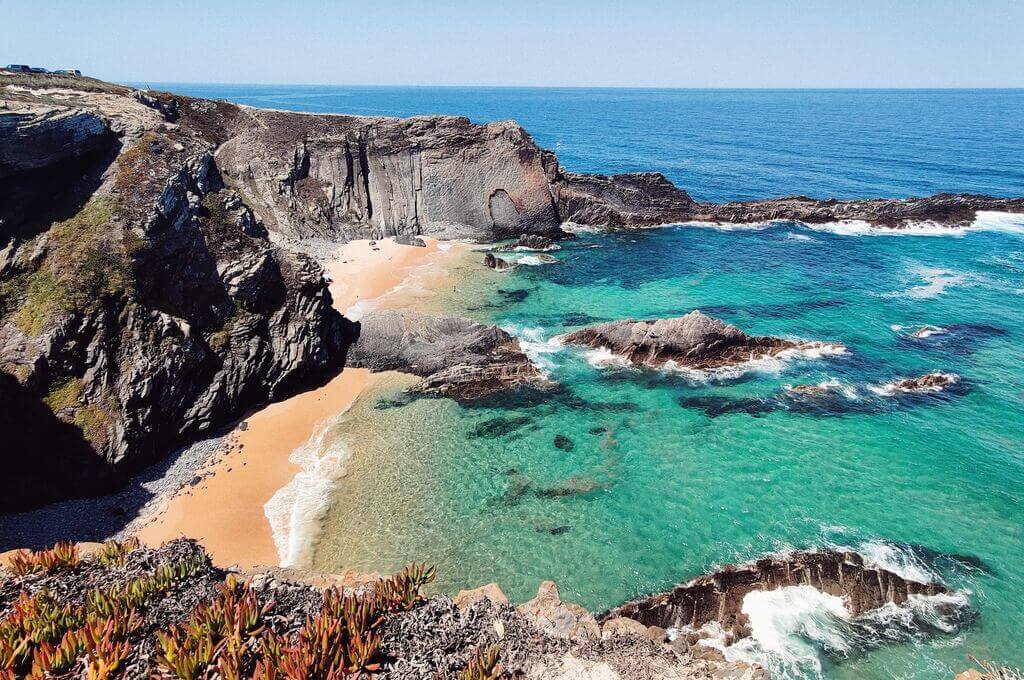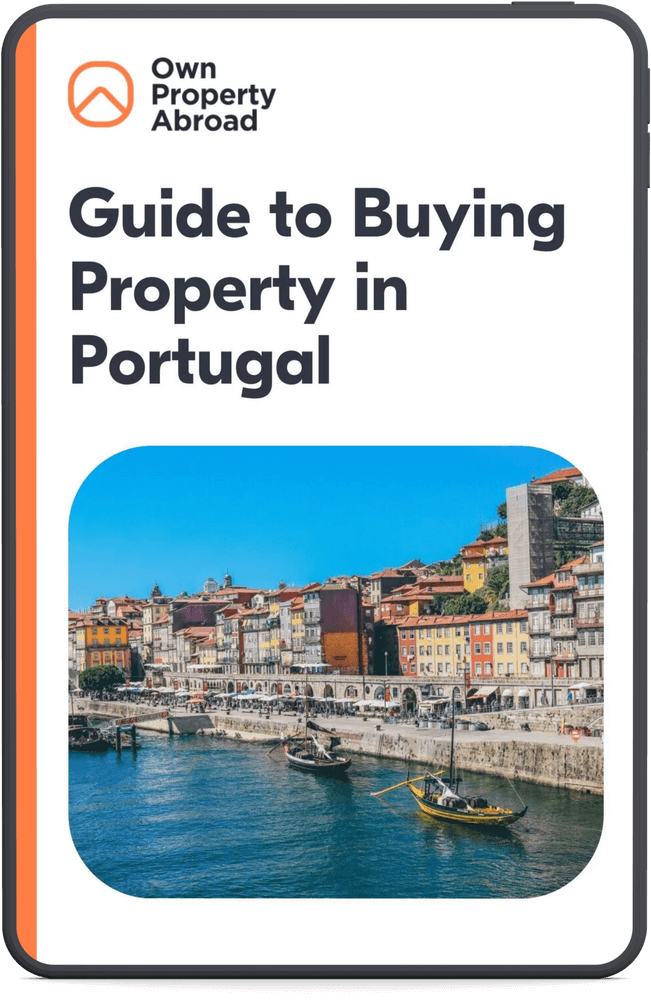The benefits of retiring in Portugal
Portugal ranks among the top destinations for the best retirement countries. But why retire in Portugal? There are three popular reasons for retirees to choose Portugal:
1. Beautiful natural landscapes
Portugal’s beaches, hills, and vineyards make the country a beautiful place to live. Portugal gives the chance to take long walks on the beach while watching the sun go down. Spending time in nature is good for health, and the natural settings of Portusuitableare good for seniors who have spent their working years in cities.
Valuable insights and practical advice, distilled from years of expertise and real-world experience.


2. Relaxed lifestyle
Retiring in Portugal is a great choice for retirees who want to escape the city life’s hustle and bustle. Portuguese culture encourages a more slow-paced and relaxed lifestyle. The Portuguese society also promotes a strong sense of community and gives people chances to make meaningful connections with others. Whether exploring local markets, attending cultural events, or simply sipping your coffee in a charming cafe, Portugal’s laidback lifestyle gives retirees the space and freedom to embrace retirement.
3. Convenient visa program
Portugal has the D7 Visa program, also known as the retirement visa in Portugal, which makes retiring in Portugal easy and convenient. The program explicitly targets individuals seeking to retire in Portugal without investing in the country. Retirees can easily apply for the D7 Visa, which grants them long-term residency in Portugal and access to various public services.
Retiring in Portugal: What to expect?
Before researching how to move to Portugal, retiring in Portugal has pros and cons. While you can find the pros above, one of the disadvantages is that Portugal can also be intimidating to non-Portuguese speakers. In tourist areas, such as Lisbon and Porto, you can find English-speaking locals, while most people in rural areas won’t be able to speak English. So when you want to retire in Portugal, you should study Portuguese to fit in the community better. Nonetheless, in tourist areas, you can find help from English-speaking locals.
What is the best place in Portugal to retire?
There are many places to retire in Portugal. Are you wondering where to retire? Choosing where to spend your golden years can be an exciting search. Check out these best cities to retire in Portugal while searching.
Lisbon
Lisbon is Portugal’s capital and an excellent place for retiring in Portugal for many reasons. The city’s mild climate ensures comfortable year-round weather, allowing retirees to explore its iconic landmarks. As the capital, it also has a well-developed transportation system and modern amenities, making everything more accessible. You will find that many expats retire in Lisbon, Portugal, because of these reasons.
Porto
Porto is the second largest city in Portugal, and many people choose to retire in Porto because it’s the right mix of a quiet place to live and modern conveniences. Porto is cheap compared to other European cities, making it an attractive place to retire, allowing retirees to stretch their retirement savings and enjoy a comfortable lifestyle without sacrificing financial security. The city is well known for its food quality and world-famous port wine, making it easy for retirees to enjoy delicious meals.
Algarve
What would you experience when retiring in the southern part of Portugal? Easy access to stunning coastlines is what the Algarve offers to retirees! You can enjoy breathtaking beaches, cliffs, and crystal-clear waters every day, an experience others might typically pay significant money for during a week-long vacation. Many people retire in Algarve, Portugal, because of its well-established expat community, making it easier for retirees to integrate into the community and participate in social events and activities.
Silver Coast
An underrated but excellent choice for retirees is Silver Coast. Locally known as Costa da Prata, what truly sets it apart from other destinations, aside from its beautiful beaches, is the unique combination of traditional Portuguese culture and a high standard of living in a laid-back environment. Silver Coast is close to big cities like Lisbon and Porto, so it’s easy to enjoy city life while staying in a peaceful seaside getaway.
Alentejo
For a more rural experience, Alentejo is a good option. It is the least populated region, making it an excellent escape for expats seeking a quieter place to live. Alentejo has a lot of olive groves and cork woods, which add to its rustic charm. In this country area, retired people can take long walks and enjoy the slower pace of life without being bothered by tourists.

Visa to retire in Portugal
Now that you know the benefits of retiring in Portugal, let’s explore the various visa options available to start your new chapter in retiring in Portugal.
Golden Visa
The Portugal Golden Visa program in Portugal is an attractive option for retirees seeking Portuguese residency. Through the Golden Visa program, non-EU citizens can obtain a residence permit by investing in Portugal. While the program does not have a specific category exclusively for retirees, it provides various investment options that they can consider. These investments include real estate acquisitions, capital transfers, investment funds, or job creation.
By meeting the investment criteria and fulfilling the program’s requirements to retire in Portugal, retirees can gain the opportunity to enjoy the benefits of its retirement-friendly environment. The program has gained significant traction since its establishment.
D7 Visa
On the other hand, the D7 Visa program is another popular option for those retiring in Portugal. Designed explicitly for passive income earners, including retirees, the D7 Visa allows foreigners to obtain residency in Portugal. How much is it to retire in Portugal under this program? The main qualifying Portugal D7 Visa requirement is that the retiree must have a minimum passive income or pension of at least €760 ($831) per month. Retirees can choose to live off their existing income without making significant investments.
Cost of living in Portugal
If you still need clarification about whether to retire in Spain vs. Portugal, know that the cost of living in Portugal is lower than in many other European and Western countries. Significant cities like Lisbon and Porto have higher living costs than smaller towns and rural areas like Alentejo and Sagres.
Retiring in Portugal does not have to be expensive. The cost of maintaining a comfortable lifestyle in Portugal varies based on factors such as where you live and your lifestyle. Retirees applying for the D7 Visa must demonstrate a minimum monthly passive income of €760 ($831). A single person’s estimated monthly costs are €615 ($672) without rent. The cost of living in Portugal is, on average, 38.4% lower than in the United States, while the cost of rent in Portugal is, on average, 53% lower than in the United States. You will find an overview of living costs in the table below.
| Type of expense | The average prices in 2024 |
|---|---|
| Essential monthly utilities (electricity, water, etc.) | €9 ($9.84) |
| Coke/Pepsi (0.33-liter bottle) | €2 ($2.19) |
| Local beer (0.5-liter draught) in a restaurant | €1.46 ($1.60) |
| Coke/Pepsi (0.33 liter bottle) | €1.43 ($1.56) |
| Gasoline (1 liter) | €1.88 ($2.05) |
| Basic monthly utilities (electricity, water, etc.) | €111.73 ($122) |
| Renting a 1-bedroom apartment in the city center | €773.86 ($846) per month |
| Renting a 1-bedroom apartment outside the city center | €590.84 ($646) per month |
| Buying an apartment outside the city center | €2,924 ($3,196) per m2 |
| Buying an apartment outside the city center | €1,980 ($2,164) per m2 |
Retirement Healthcare in Portugal
Healthcare is favorable for expats in Portugal as it is more affordable and accessible. Portugal has a national healthcare system, the Serviço Nacional de Saúde (SNS), which provides universal coverage. As a retiree, you can benefit from the SNS and access various medical services, including doctor consultations, hospital care, and prescription medications.
EU citizens need to have the European Health Insurance Card (EHIC). In contrast, non-EU citizens need comprehensive personal health insurance in their initial retirement since they are still not considered permanent residents.
It is important to note that one of the downsides of retiring in Portugal is the language barrier among healthcare professionals in non-major cities.
Portugal taxes for retirees
Retiring in Portugal comes with the significant advantage of tax exemptions that can significantly assure retirees of their financial well-being. The pension, which includes regular payments or lump sums from life insurance policies, retirement savings plans, and other supplementary social security systems, is not taxable for ten years should it already be taxed in the origin country. Otherwise, pensions originating from foreign sources are subject to a flat rate of 10% tax in Portugal. Through this, they can maximize their retirement savings and enjoy a higher disposable income. Click here to get help with taxes in Portugal.
Non-Habitual Residence (NHR) program
The Non-Habitual Resident (NHR) program is the tax regime allowing expats to retire tax-free in Portugal. It will enable them to benefit from tax exemptions on certain foreign income, such as pensions. As mentioned, retirees can enjoy tax exemption from their retirement or a flat rate of 10%. Nonetheless, whether you benefit from the program or not, remember to obtain an NIF and open a bank account when retiring in the country.
Retire in Portugal with Own Property Abroad
Do you want to retire in Portugal? Own Property Abroad can assist you. Thanks to our knowledge and experience, we can help with retiring in Portugal and real estate matters, such as legal requirements, finding suitable properties, negotiating the best deals, and conducting due diligence.
For further information on how we can assist you, kindly drop your details below or email us at [email protected].
Valuable insights and practical advice, distilled from years of expertise and real-world experience.


Frequently Asked Questions (FAQs)
How to retire in Portugal?
To retire in Portugal, you can start by researching the visa options available, such as the D7 Visa and the Golden Visa. Once you have chosen the appropriate visa program, you can begin the application process, including gathering the necessary documents and fulfilling any financial or residency criteria.
Where to retire in Portugal?
It’s important to explore different regions based on your preferences. Popular retirement destinations in Portugal include Lisbon, Porto, the Algarve, the Silver Coast, and the Alentejo region, each offering unique characteristics.
How much does it cost to retire in Portugal?
The cost of retiring in Portugal can vary depending on factors such as location and lifestyle. On average, retirees should expect around €1,000 ($1,093) to €1,500 ($1,640) monthly for living expenses, including housing, utilities, transportation, food, healthcare, and leisure activities.
Can Americans retire in Portugal?
Yes, many retire in Portugal from the USA. Portugal is a popular destination for retirees worldwide, including the United States. American retirees can use various visa options to establish residency and enjoy the benefits of retiring in Portugal.
Can you retire in Portugal from the UK?
Yes, individuals from the UK can retire in Portugal. Brexit does not prevent UK citizens from retiring in Portugal, and they can still take advantage of the visa programs to retire in Portugal.




